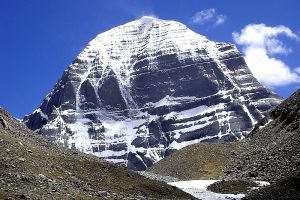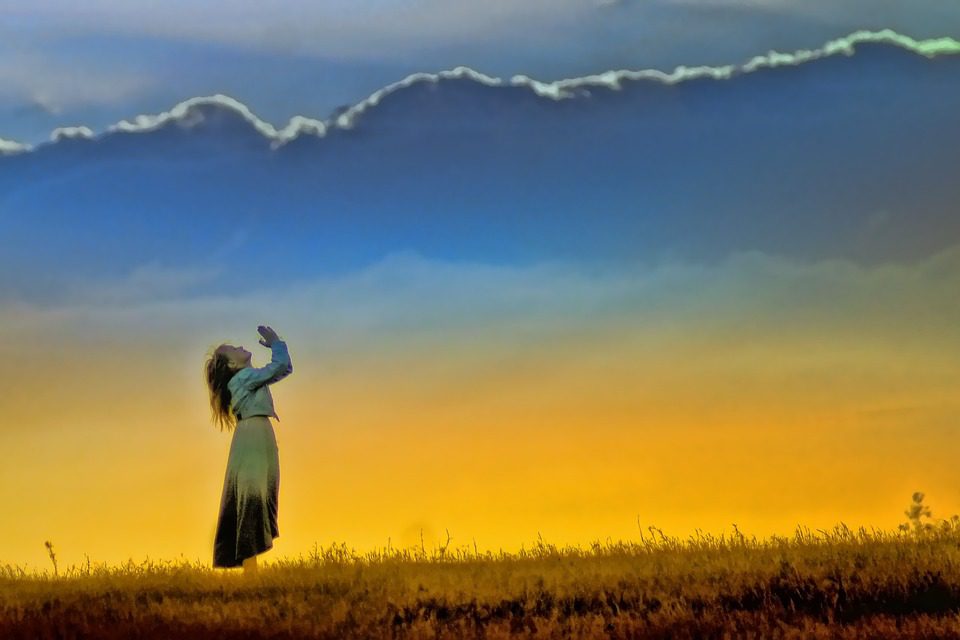Animism is considered to contain the oldest spiritual and supernatural perspectives in the world. Radhika aspires for its revival to save our planet. An exclusive for Different Truths.
 Zemyana in Lithuania, Pachamama in South America, Bhumi Devi in India, Aja in Africa, the mother goddess, the revered and the most ancient one. Gaia. Who created herself out of the primordial chaos. Out of whom all living beings originate and must return. The worship of mother earth as a goddess was once widely practiced across the planet by various communities.
Zemyana in Lithuania, Pachamama in South America, Bhumi Devi in India, Aja in Africa, the mother goddess, the revered and the most ancient one. Gaia. Who created herself out of the primordial chaos. Out of whom all living beings originate and must return. The worship of mother earth as a goddess was once widely practiced across the planet by various communities.
…am awaiting the archaic revival of our earlier animistic ways, of elemental gods, of people honoring and worshipping their connection with the forces of nature. Wind, water, fire, trees and animals.
This was when the roots of religious belief and the sacredness of nature were closely entwined, and we lived in close balance with nature. I for one am awaiting the archaic revival of our earlier animistic ways, of elemental gods, of people honoring and worshipping their connection with the forces of nature. Wind, water, fire, trees and animals.
Animism holds the belief that all physical phenomena have consciousness, that there is no real difference between the spiritual and physical (or material) world and that soul or spirit or sentience exists not only in humans, but also in other animals, plants, rocks, geographic features such as mountains or rivers or other entities of the natural environment, including thunder, wind and shadows. As such, animism is considered to contain the oldest spiritual and supernatural perspectives in the world, dating back to the Palaeolithic Age when humans were still hunter-gatherers.
It was a rock that came from a magical river, we decided, and held within it, great powers which we could be blessed with, if we honored it.
As children we are allowed freedom that as adults, we don’t even realise we have  been deprived of during the process of growing up. One of which is the freedom to have our own experience, beyond the rules and judgement of societies norms. How strange it is to classify us as categories when we are actually wildly different individuals. I remember very vividly one summer, then I was about 12 years old, when my friends and I found a rock, which we all declared as special. It was a rock that came from a magical river, we decided, and held within it great powers which we could be blessed with, if we honored it. We washed the rock with water and kept it in the sunshine, offered it different flowers and leaves that we could find from our gardens. Unknowingly our actions were deeply rooted in animistic traditions. An ancient memory triggered spontaneously? Perhaps.
been deprived of during the process of growing up. One of which is the freedom to have our own experience, beyond the rules and judgement of societies norms. How strange it is to classify us as categories when we are actually wildly different individuals. I remember very vividly one summer, then I was about 12 years old, when my friends and I found a rock, which we all declared as special. It was a rock that came from a magical river, we decided, and held within it great powers which we could be blessed with, if we honored it. We washed the rock with water and kept it in the sunshine, offered it different flowers and leaves that we could find from our gardens. Unknowingly our actions were deeply rooted in animistic traditions. An ancient memory triggered spontaneously? Perhaps.
Among the Ojibwe communities of Canada personhood does not require human-likeness, but rather humans were perceived as being like other persons, who for instance included rock persons and bear persons. For the Ojibwe, these persons were each conscious being who gained meaning and power through their interactions with others; through respectfully interacting with other persons, they themselves learned to “act as a person”.
Across the world there are scared nature sites and symbols which are revered by communities.
Across the world there are scared nature sites and symbols which are revered by  communities. Closer home, in India we are still largely a country of people who worship rivers like the Ganga and Yamuna; mountains like the Kailash and Niyamgiri; forests like the sacred groves across the country; trees like the Peepal and Deodar; animals like the elephant and tiger.
communities. Closer home, in India we are still largely a country of people who worship rivers like the Ganga and Yamuna; mountains like the Kailash and Niyamgiri; forests like the sacred groves across the country; trees like the Peepal and Deodar; animals like the elephant and tiger.
Where then did we move from worshiping nature to exploiting it?
“…We have the technological power, the engineering skills to save our planet, to cure disease, to feed the hungry, to end war; but we lack the intellectual vision, the ability to change our minds. We must decondition ourselves and it’s not easy.” ~ Terence McKenna
It’s probably the question which will answer many of the problems we face today as a planet. “It’s clearly a crisis of two things: of consciousness and conditioning. We have the technological power, the engineering skills to save our planet, to cure disease, to feed the hungry, to end war; but we lack the intellectual vision, the ability to change our minds. We must decondition ourselves and it’s not easy.” These are words from an essay by Terence McKenna, who was an American ethnobotanist, mystic, psychonaut and author.
In the space of less than 100 years between the eighteenth and nineteenth centuries, several countries completely transformed the nature of their economies due to the Industrial Revolution.
People have been conditioned to focus on seemingly more demanding priorities than worry about the environment.
Right from the start of the Industrial Revolution, people have perhaps not been very mindful that the development of an industrial economy has both positive and  negative outcomes. The paybacks, in terms of opportunities, cheap consumer goods and profits, were usually felt to outweigh the disadvantages, predominantly by those in positions of power. The adverse effects on the environment were usually seen to be an inevitable cost of development, to be addressed only when there was a definite and urgent threat to life and livelihoods. People have been conditioned to focus on seemingly more demanding priorities than worry about the environment.
negative outcomes. The paybacks, in terms of opportunities, cheap consumer goods and profits, were usually felt to outweigh the disadvantages, predominantly by those in positions of power. The adverse effects on the environment were usually seen to be an inevitable cost of development, to be addressed only when there was a definite and urgent threat to life and livelihoods. People have been conditioned to focus on seemingly more demanding priorities than worry about the environment.
Moreover, over the years, constant brain washing by mainstream media has completely distracted the masses to focus on celebrities, television, politics, religion, sports and away from environmental issues. We have constructed a system that imposes itself on us, and we have become its slaves and victims. We have created a society in which we are so caught up in our own immediate problems that we cannot afford to be aware of what is going on with the rest of the human family or our planet Earth.
Organised religions have played their own part in suppressing animistic beliefs which protected nature.
Conditioning holds us prisoners. You lean into molds and they hold and shape you.
Conditioning holds us prisoners. You lean into molds and they hold and shape you. Until they don’t. Until the old forms no longer house the shape of your need.
But I believe change is inevitable, and I see it emerging from within the people. It’s a movement sprouting like a tiny but consistent seedling from below the surface and rising above the soil to become stronger having braved the pain of breaking apart and the darkness underground.
I see it – the countless rising in protest across the planet against destruction of forests, of marine life and of communities depending on forests. Soon those numbers will be in the millions and then the billions who will cause an uprising and a revival of the earth spirits once again. Until then, Gaia awaits.
©Radhika Bhagat
Photos sourced by the author from the Internet





 By
By

